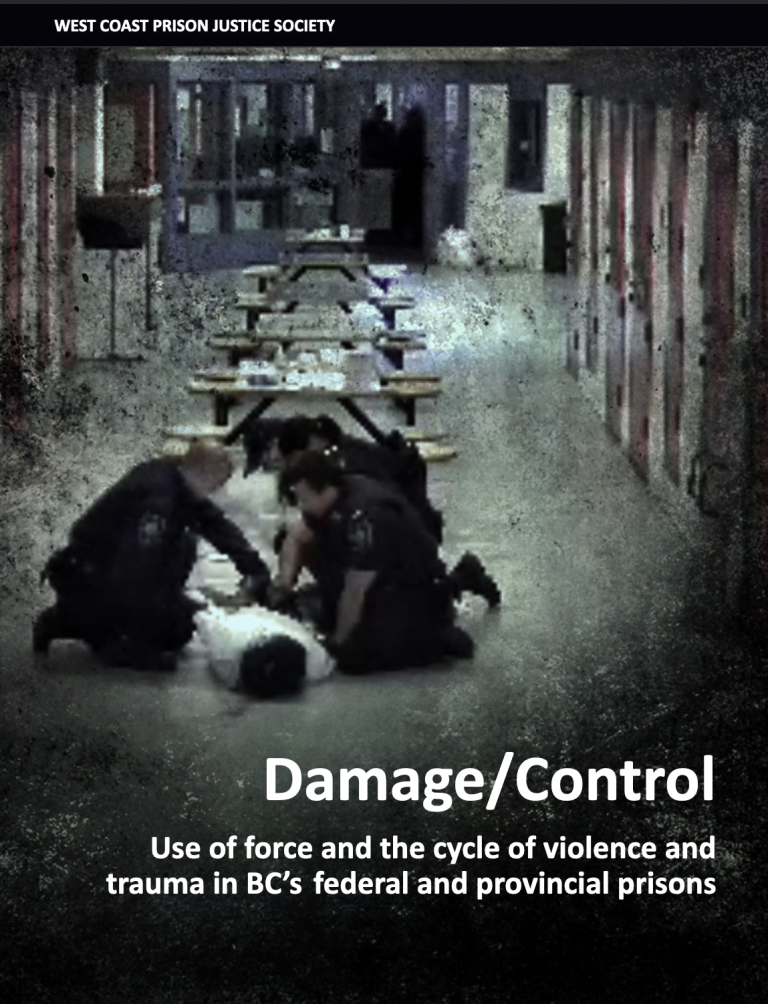37 search results
for
Health
To BC Corrections
Regarding training
Recommendation 8: Expand training on conflict resolution, de-escalation skills, nonviolent crisis intervention and working with people with mental health disabilities. This should be designed in conjunction with mental health experts and people with lived experience.-
Category and theme:
To BC Corrections
Regarding training
Recommendation 9: Require advanced training in working with people with mental health disabilities for all Mental Health Liaison Officers as well as staff working on mental health and no-violence units, in segregation, and as members of ERTs as a prerequisite for performing these roles. Require regular refresher courses.-
Category and theme:
To BC Corrections
Regarding prisoners with physical and mental health disabilities
Recommendation 10: Create specialized officer-nurse teams to respond to situations involving emotional or medical distress using joint decision-making. This could follow models in the community that pair specially trained police with psychiatric nurses to respond to emergencies involving people with mental health issues.-
Category and theme:
To BC Corrections
Regarding prisoners with physical and mental health disabilities
Recommendation 11: Develop an alternative model for recognizing and responding to prisoners with mental health disabilities in crisis, in partnership with the Provincial Health Services Authority (including the Forensic Psychiatric Hospital) and people with lived experience. This includes prisoners in emotional distress (such as prisoners who are self-harming) as well as prisoners who are experiencing behavioural emergencies connected with their disabilities. These responses should be supportive and trauma-informed rather than punitive.-
Category and theme:
To BC Corrections
Regarding prisoners with physical and mental health disabilities
Recommendation 12: In partnership with the Provincial Health Services Authority, develop an alternative model for recognizing and responding to medical emergencies.-
Category and theme:
Groups affected:
To BC Corrections
Regarding prisoners with physical and mental health disabilities
Recommendation 14: Transfer authority for interventions to address self-harm and suicidality, including restraints, observation cells and suicide smocks, to the Provincial Health Services Authority. Eliminate the use of the BOARD and WRAP, except where authorized by the Provincial Health Services Authority for medical purposes.-
Category and theme:
To BC Corrections
Regarding prisoners with physical and mental health disabilities
Recommendation 15: Select officers who excel at conflict resolution and empathy to work as Mental Health Liaison Officers and on therapeutic units, and involve the Provincial Health Services Authority in their training.-
Category and theme:
To BC Corrections
Regarding internal use of force reviews
Recommendation 21: Use of force reviews should identify the number of previous uses of force against the same prisoner. For prisoners who are repeatedly subject to force, develop a plan to reduce uses of force, in conjunction with the Provincial Health Services Authority for prisoners with disabilities. If force is not reduced, conduct an operational review.-
Category and theme:
Groups affected:
To BC Corrections
Regarding internal use of force reviews
Recommendation 22: Prisoners who are repeatedly subject to force should have all subsequent uses of force automatically reviewed by the Force Options Coordinator and, if appropriate, by the mental health expert mentioned in recommendation 13.-
Category and theme:
To the Provincial Health Services Authority
Recommendation 36: Develop policy and training on dual loyalty and the domestic and international ethical obligations of medical professionals working in prisons.-
Category and theme:
Groups affected:
